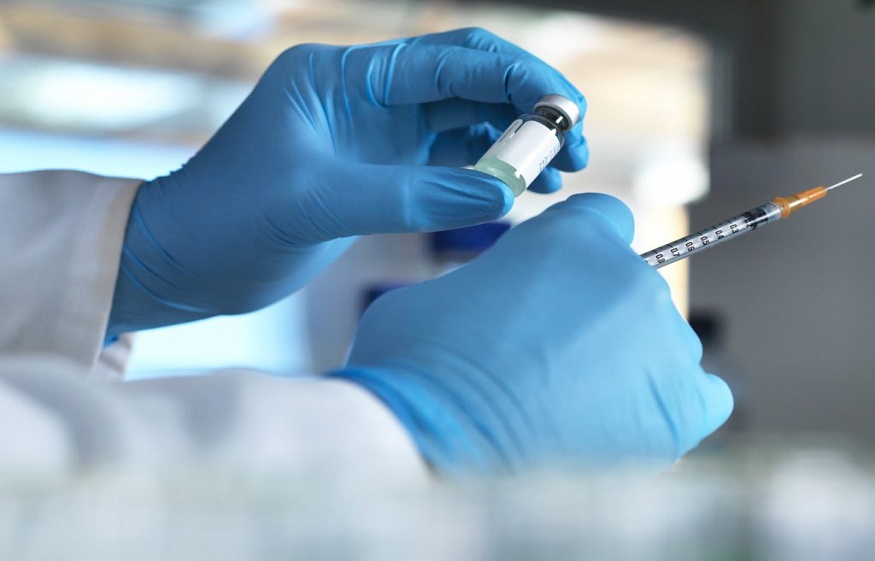What are DNA Vaccines, and Why Are They Important?
In microbiology, genetic recombination is a type of reassortment between two or more genetic elements. It usually occurs between two DNA or DNA-like molecules but can also involve RNA. It leads to the exchange of genetic information and is a form of molecular evolution that plays a vital role in adaptive immunity. A vaccine works by introducing an inert form of a disease-causing microbe, which prompts the body’s immune system to develop defenses against it. This usually means that if the body is later exposed to the real disease-causing microbe, the immune system will be able to prevent infection and destroy it before illness occurs.
In this article, we discuss what DNA vaccines are and their benefits.
Why DNA Vaccines Stand Out
DNA vaccines are proving to be effective in treating several forms of cancer. The advantages include an increase in the efficiency of cancer treatment, capacity to treat deep-seated tumors, inexpensive production, and use of animal vectors that have been used for many years in medical research. However, the disadvantages of DNA vaccines are that there are a lot of unknowns regarding DNA vaccines. It is unknown how effective they will be used to treat different diseases or how such treatments can affect a patient in the long run. One thing is sure, DNA vaccine therapy holds great promise forthe future development of other effective and inexpensive methods that could improve the quality of life for patients worldwide.
DNA vaccines are a type of vaccine that uses genetically engineered DNA to produce an immune response in the body.
DNA vaccines have been a hot topic in the scientific community for the past few years, as researchers work to develop new disease treatments and cures. DNA is known to be a sturdy biological compound that can hold a variety of genetic messages that can be used to produce different proteins in the body. Removing certain genes from the DNA of bacteria and viruses eliminates the ability to replicate or mutate. It can be used to prompt a response from the immune system.
Unlike traditional vaccines, which use dead or weakened microbes, bacteria, or viruses to train the immune system, these vaccines simply introduce genes associated with those microbes into the body. When these genes enter your cells, they become proteins, the building blocks for antibodies and other vital molecules used by your immune system during an infection. This process can cause you to make protective antibodies against some types of bacteria or viruses without ever having been exposed to them before.
DNA vaccines have many advantages over other types of vaccines.
They are safer and cost-effective
DNA vaccines are safer, cheaper, and more effective than conventional vaccines. They do this by changing how vaccines are produced. Conventional vaccines are made using live strains of viruses that have been killed or weakened. It is necessary to use a live strain because the immune system only responds to an antigen if it is in a live form. However, using a live virus can be dangerous as it can cause infection, particularly if the virus has been weakened so much that it isn’t able to cause disease. Additionally, it is expensive and time-consuming to produce vaccines in this manner.
They are easy to produce
They are easy to produce and store, don’t require refrigeration, work well in people with weak immune systems, and can be combined into multi-part vaccines. As a result, they are a good option for developing countries with limited refrigeration facilities. In addition, DNA vaccines work well in people infants or those who have cancer and HIV/AIDS.
DNA vaccines are produced from genetic information from the virus and therefore mimic the natural infection process more closely than conventional vaccination methods. In DNA vaccines, the information needed to trigger an immune response is inserted into a non-infectious carrier such as a bacterial plasmid or viral vector.
Can be combined into multi-part vaccines
A major advantage of DNA vaccinations is that they can be combined into multi-part vaccines. This means that a single injection could potentially protect against multiple diseases at once, such as dengue fever and Zika virus, which are closely related, or chikungunya virus and another mosquito-borne disease.
You can add new proteins to the DNA
In addition, with this type of vaccine, it’s easy to add new proteins onto the DNA later to improve its effectiveness.This means that if you have a new strain of influenza or another virus that appears in your area and want to use a vaccine against it, it would be easy to add those proteins to the DNA later.
While DNA vaccines are still in the early stages of development, they hold promise as a safer alternative to traditional vaccines. For example, if a virus-like COVID-19 mutates after a vaccine has been developed, it would be much easier to update a DNA vaccine than one made from an actual virus.
This important new technology will improve how we develop vaccines for pandemics.
DNA vaccines are an important new technology that will improve how we develop vaccines for pandemics. They’re easy to produce and store, don’t require refrigeration, work well in people with weak immune systems, and can be combined into multi-part vaccines.
In addition to their practical benefits, DNA vaccines have been shown to induce immune responses similar to or better than traditional injectable vaccines.
Conclusion
Hopefully, by now, you have a better understanding of DNA vaccines and their importance as a tool for fighting infectious diseases.These types of vaccines are not only safer than traditional ones but also more effective. They have the potential to save millions of lives every year if implemented properly. DNA vaccines can be used against almost any disease-causing virus or bacteria because they work by triggering an immune response from within your body rather than injecting something harmful into it,as the flu shot does. The next time there is a pandemic like COVID-19, we won’t have to wait years before getting an effective vaccine. Instead, they can quickly produce one using this technology.



